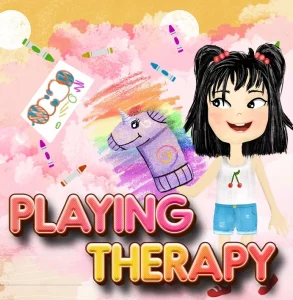
Toddlers are at a crucial stage of development where they are learning to navigate the world around them and interact with others. This is a prime time to start teaching them social skills and emotional intelligence, which will lay the foundation for healthy relationships and successful communication in the future.
Emotional intelligence, often referred to as EQ, is the ability to recognize, understand, and manage our own emotions, as well as to recognize and empathize with the emotions of others. It is a vital skill that helps individuals build strong relationships, resolve conflicts, and make informed decisions.
Teaching social skills and emotional intelligence to toddlers can be done through various methods, all of which focus on fostering self-awareness, empathy, and effective communication. Here are a few strategies that parents and caregivers can use:
1. Model Behavior
Toddlers are keen observers and imitators, so modeling behavior is an excellent way to teach social skills. Show them how to greet others, say "please" and "thank you," and properly express emotions. By consistently exhibiting these behaviors yourself, toddlers will learn by example and begin to mimic them in their interactions.
2. Encourage Empathy
Empathy is a fundamental aspect of emotional intelligence. Help toddlers understand the emotions of others by talking about feelings and encouraging them to think about how others might be feeling.
For example, when reading a story or watching a movie together, ask questions like, "How do you think the character feels?" or "What can we do to help them feel better?" This will foster empathy and kindness in their interactions.
3. Use Play to Teach Social Skills
Play is a natural way for toddlers to learn and practice social skills. Engage in activities like pretend play, role-playing, and sharing games to teach them the importance of taking turns, cooperating, and considering others' feelings. Through play, toddlers can learn about empathy, negotiation, and problem-solving in a fun and interactive way.
4. Practice Active Listening
Active listening is a critical skill for effective communication. Encourage toddlers to listen attentively when others speak and respond appropriately. Teach them to wait their turn and not interrupt. By modeling active listening to yourself and praising their efforts when they demonstrate it, you can help them develop this essential social skill.
5. Teach Problem-Solving
Conflict resolution and problem-solving skills are essential for building strong relationships. Teach toddlers how to communicate their needs, express their feelings, and find solutions to problems. Encourage them to use words instead of physical aggression and provide guidance on finding win-win solutions that consider everyone's needs.
6. Foster Emotional Expression
Toddlers often struggle with effectively articulating their emotions. Encourage them to express their feelings verbally by labeling emotions and teaching them appropriate ways to express themselves. Provide a safe and supportive environment where they feel comfortable sharing their emotions and thoughts without fear of judgment or punishment.
7. Provide Positive Reinforcement
Positive reinforcement is a powerful tool for teaching social skills and emotional intelligence. Praise toddlers when they demonstrate good manners, empathy, and effective communication. Positive feedback will reinforce these behaviors and encourage them to continue practicing them in their interactions.
Unlocking emotional intelligence and teaching social skills to toddlers is a continuous process that requires patience and consistency. It is essential to remember that each child develops at their own pace, so be patient and provide ongoing support and guidance. By instilling these skills from an early age, toddlers will have a strong foundation for healthy relationships, effective communication, and overall emotional well-being.